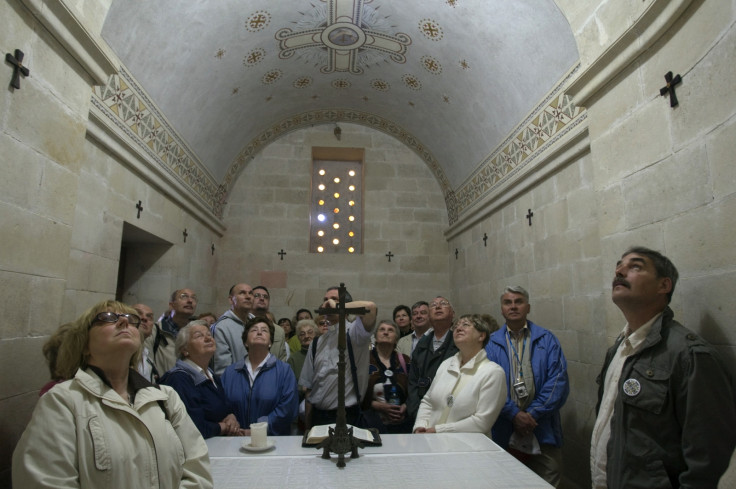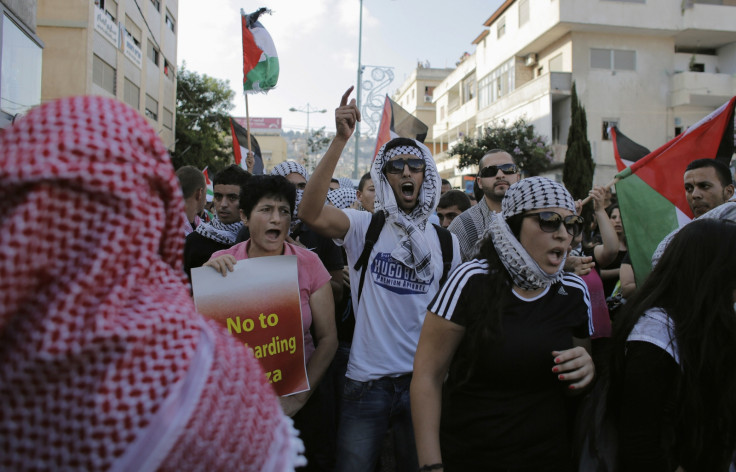Inside Israel Diary: Walking Through Nazareth's Eerie, Empty Streets
After arriving in Nazareth, from Tel Aviv, one of the first things that strikes you is the difference in language, which signals the shift in culture and population.

The northern Israeli city is home to a significant amount of Israel's Arab population and it's unsurprising that the sounds of Arabic pepper the air when exploring the city.
However, the second and and most equally striking phenomenon is the emptiness of the streets.
Aside from the odd group of pilgrims, Nazareth has been deserted by its usual influx of foreign visitors but for us, after an arduous bus ride from Tel Aviv, the eerie calm is soothing and most welcome.
But the silence holds no romance for the population here.
During the evening, Nazareth's ancient cobbled alleyways appear frozen in time, etched with evidence that tourists once flooded the streets during the summer.
The War

Since Israel launched its war on Gaza in July, the country has suffered a dramatic drop in tourist arrivals.
Nazareth has been one of the cities hit hardest.
Early estimates show the city lost between 30% and 50% of its tourism clientele over July and August, although a true figure will emerge in the coming months.
But revised figures are unlikely to paint a better picture.
Some hotels here have reported almost 0% occupancy on the worst days in this period- something that I haven't heard in the bigger more established cities of Jerusalem and Tel Aviv.
Foreign tourists cancelled their trips across the country, a phenomenon that has affected all businesses equally.
Yet, while some of the businesses in Tel Aviv and Jerusalem reported an increase in the number of Israelis during the summer, a defiant display of patriotism against the downturn in the industry, the hotels in Nazareth reported the opposite.
It's Not Just the Tourists' Fault
The city experienced a double blow, as foreign visitors and Israelis cancelled their trips.
The conflict between Israel and Hamas in Gaza has ramifications for the Arab Israelis that live and work in Nazareth.
Arab and Jewish Israelis are united by their citizenship but are generally divided when it comes to politics.
The political struggle over a future Palestinian state in the West Bank is ever-present. The periodic military struggles between Hamas and the Israeli armed forces in Gaza can widen the divide. Nazareth saw small demonstrations against the government's military operation.
When the fighting was at its peak this summer, Israel's foreign minister called on the country to boycott Israel's Arabs.
While it's hard to measure the impact of this rallying cry from one of the country's leading politicians, businesses in Nazareth have said that the war hit their revenues doubly hard, as Israelis joined the foreigners in flight.
For more, check out IBTimes TV or the video at the top of the page.
© Copyright IBTimes 2024. All rights reserved.






